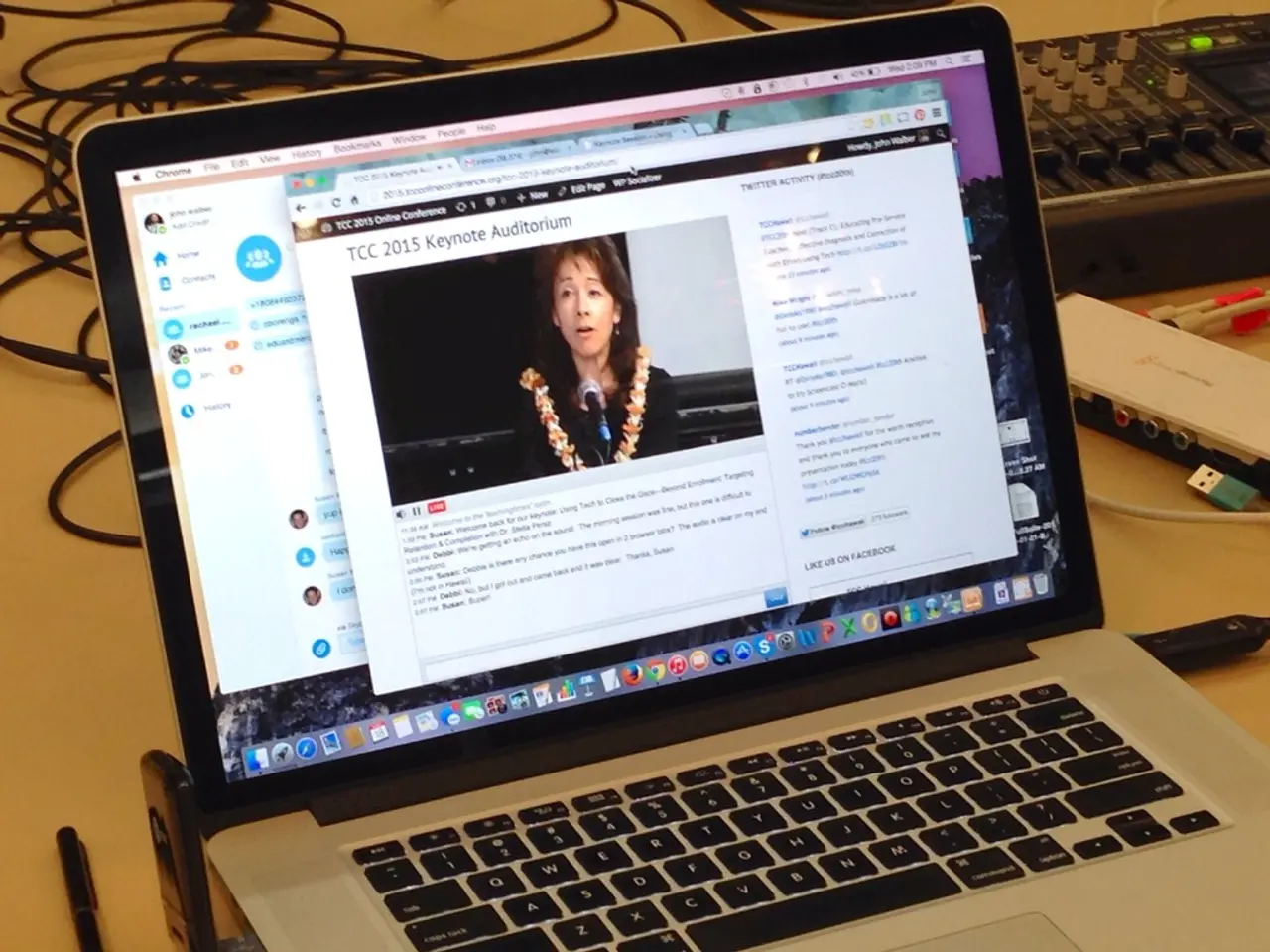Tennessee's ELVIS Act: A Recent Legislation Regarding Artificial Intelligence Likeness
In a significant stride for the protection of public figures, Tennessee's Ensuring Likeness, Voice, and Image Security Act (ELVIS Act) was enacted on March 21, 2024. This groundbreaking legislation is the first U.S. state law specifically designed to safeguard musicians, celebrities, and everyday individuals from unauthorized AI-generated uses of their voice, likeness, and image [1][2][4].
The ELVIS Act extends personal rights protections to real and AI-generated voices, providing safeguards for everyone. It narrows certain defenses that could be used in commercial contexts, ensuring that all parties involved—creators, distributors, or advertisers—are held accountable for the misuse of protected personal attributes [3].
At the federal level, a proposed 10-year moratorium on state-level AI legislation was overwhelmingly rejected by the U.S. Senate in July 2025, preserving states' rights to regulate AI-generated personal likeness [3]. This decision allows other states to follow Tennessee's lead and enact their own AI-related personality rights protections.
Several states, such as Alabama and Arizona, have already passed related laws targeting deceptive AI-generated or synthetic media, particularly regarding elections and digital impersonation [2].
As of mid-2025, the ELVIS Act stands as the cornerstone of U.S. state-level AI legislation, offering opportunities for AI companies to innovate within a regulated framework. The Act encourages the development of transparent and ethical AI platforms that offer users greater control over how their likenesses are used [5].
The ELVIS Act strengthens penalties for the unauthorized use of an individual's protected attributes, such as their voice, name, photograph, or likeness. This means victims or their estates can pursue lawsuits for damages [6]. However, the Act does present challenges, such as overstepping and restricting the creative potential of AI [7].
The ELVIS Act places increased responsibility on AI platforms to ensure likenesses, voices, and images are used with proper authorization. This may lead to a more complex regulatory landscape for AI platforms, particularly those involved in deepfake technologies and synthetic media generation [8].
In a bid to improve the user experience and maintain data security, our website offers businesses a hassle-free verification process through innovative website management systems and protocols. As members of the World Wide Web Consortium (W3C), our website upholds the standards for the World Wide Web and works towards a more secure and user-friendly online experience [9].
References:
- Tennessee's ELVIS Act: Protecting Public Figures from AI Misuse
- State-Level AI Legislation: A Comprehensive Overview
- Federal Moratorium on State AI Laws: A Close Call
- The ELVIS Act: A Game-Changer for AI-Generated Media
- The Evolution of AI Regulation: A Political Perspective
- ELVIS Act Strengthens Penalties for Unauthorized Use of Personal Attributes
- ELVIS Act: Balancing Protection and Creativity
- ELVIS Act: Implications for AI Platforms
- Our Website: A Commitment to Web Standards and User Experience
- The development of AI platforms could benefit from the ELVIS Act by cultivating transparent and ethical systems that respect the likenesses of individuals in the real world and in AI-generated media, especially in areas like music and entertainment.
- The rejection of the federal moratorium on state-level AI legislation in 2025 enabled states like Alabama and Arizona, among others, to build upon Tennessee's ELVIS Act, extending protections for musicians, celebrities, and everyday individuals against unauthorized uses of their voice, likeness, and image in various aspects of technology and entertainment.




